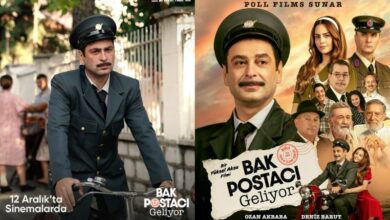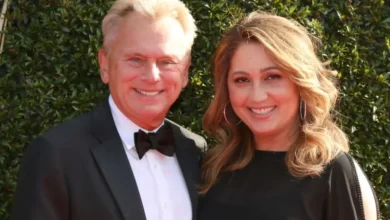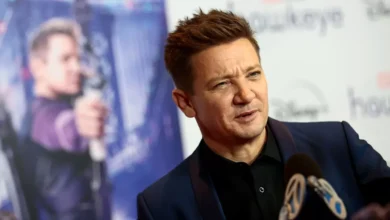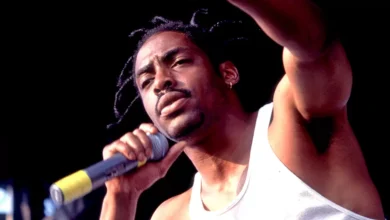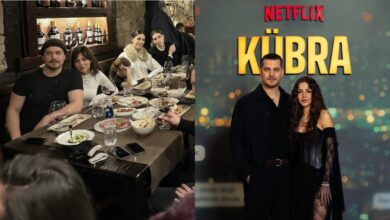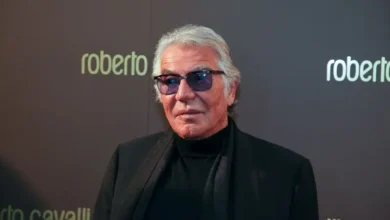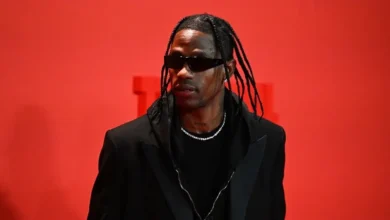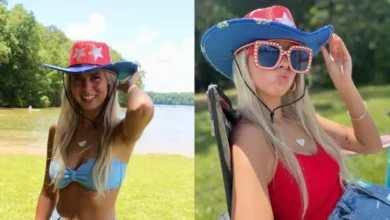Matty Healy defends Malaysia kiss during 1975 concert in Dallas
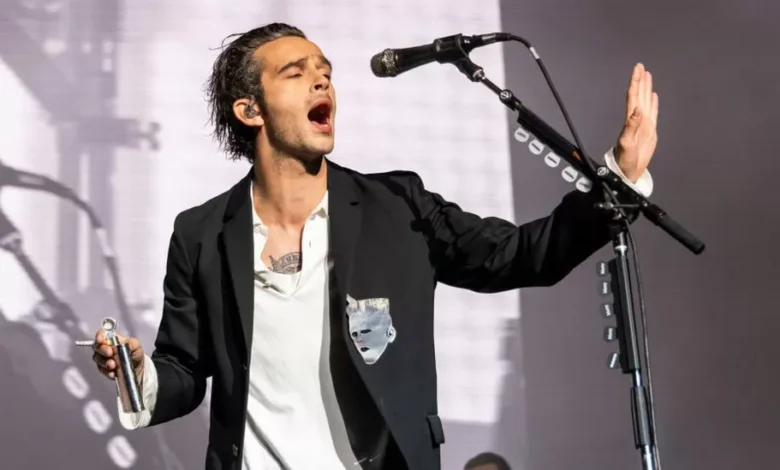
Matty Healy has defended kissing his bandmate onstage in Malaysia in a 10-minute speech delivered at a 1975 concert in Dallas, Texas.
Healy told fans he had been told not to talk about the incident, then read a pre-prepared speech from his phone.
He addressed criticism of his conduct at the Malaysian festival, during which he attacked the country’s anti-LGBT laws then kissed his bandmate.
The Malaysian government cancelled the rest of the event after the incident.
The organisers of Good Vibes Festival later demanded compensation from The 1975, and some LGBT Malaysians criticised Healy, saying his actions displayed a “white saviour complex”.
Defending the July performance, Healy said the band “did not waltz into Malaysia”, and had been invited by organisers who knew the band’s political views and the nature of their shows.
Healy said the kiss was “not a stunt simply meant to provoke the government” but an “ongoing part of the 1975 stage show which had been performed many times prior”.
He described online anger over the performance as “liberal outrage”, and said criticism of the band for “remaining consistent” by performing its “pro-LGBT stage show” was puzzling.
In July, young Malaysians said that they felt Healy’s actions reflected a patronising Western attitude to Asia.
Others expressed concern that the high-profile incident could be used to reinforce LGBT repression in Malaysia, where homosexuality is punishable by 20 years in prison.
This article contains content provided by Twitter. We ask for your permission before anything is loaded, as they may be using cookies and other technologies. You may want to read Twitter’s cookie policy, external and privacy policy, external before accepting. To view this content choose ‘accept and continue’.
Healy referenced the country’s strict anti-LGBT laws in his speech, and also said the Malaysian authorities had “briefly imprisoned” the band.
The frontman said the suggestion that the kiss had just been a “performative gesture of allyship” was redundant, as “performing is a performer’s job”.
Healy said event organisers could not invite acts to perform and expect them to self-censor, telling the Dallas crowd: “It should be expected that, if you invite dozens of Western performers into your country, they’ll bring their Western values with them.”
The singer concluded by referencing strict laws in some parts of the US, telling the American crowd that critics of the band’s actions in Kuala Lumpur “would find it abhorrent if the 1975 were to acquiesce to… Mississippi’s perspective on abortion or trans laws”.
This is not the first time that Healy has addressed online criticism during a 1975 concert.
Last week, the singer apologised for “actions that have hurt some people” while onstage in Los Angeles.
Earlier this year, Healy mocked American rapper Ice Spice on a podcast, mimicking Asian and Hawaiian accents and asking the show’s hosts to do impressions of Japanese people labouring in concentration camps.
During his performance at the Hollywood Bowl, Healy said he had “performed exaggerated versions” of himself “on other stages be it in print or on podcasts… in an often misguided attempt at fulfilling the kind of character role of the 21st-century rock star”.
